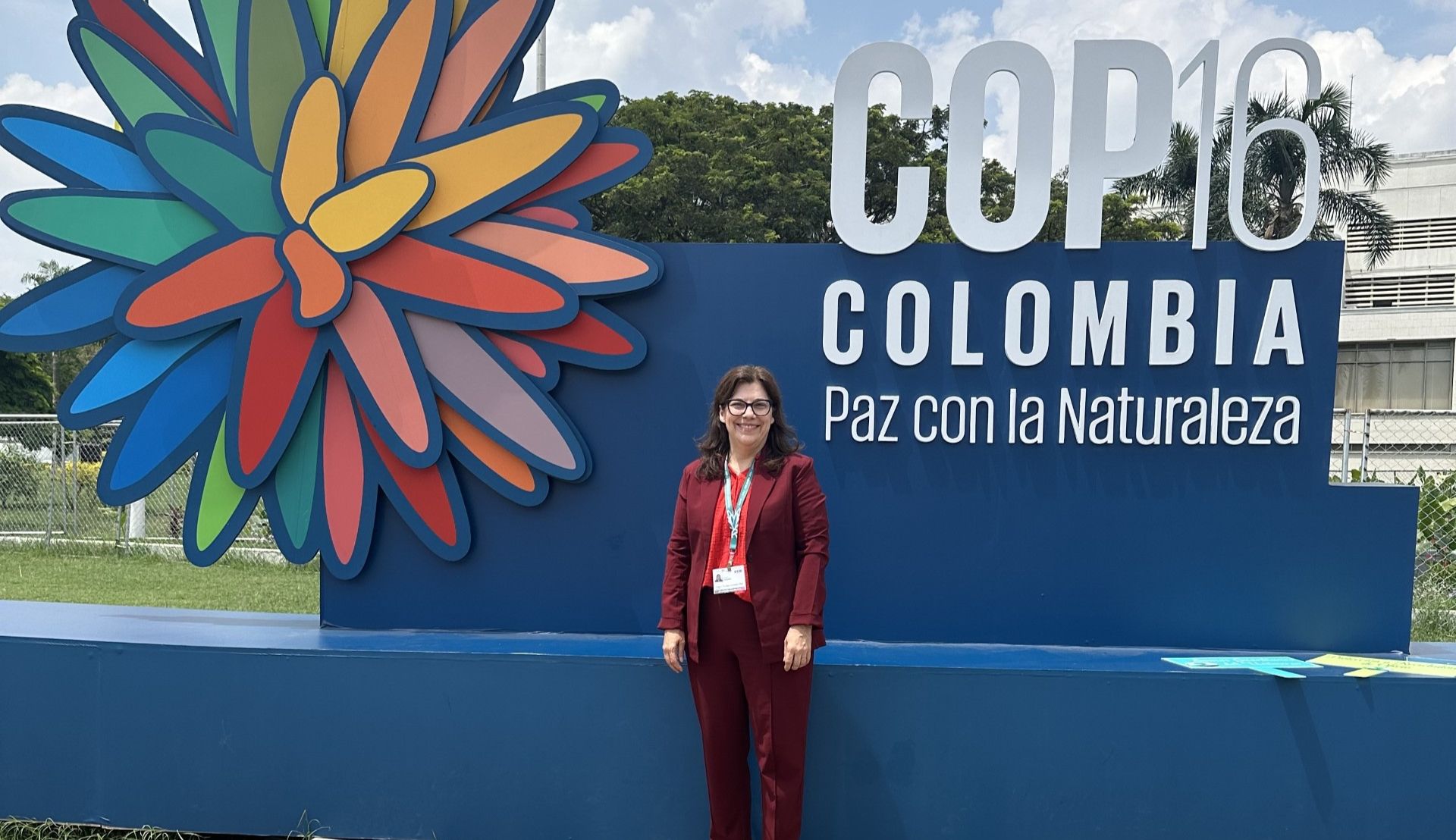Pamela McElwee, professor in the Department of Human Ecology, represented Rutgers University at the UN’s 16th Conference of the Parties to the Convention on Biological Diversity (COP 16) in Cali, Colombia.
Rutgers has been an observer organization since 2022. McElwee participated in three formal side events, including an event organized by the Intergovernmental Science-Policy Platform on Biodiversity and Ecosystem Services (IPBES) on upcoming assessments. McElwee is the co-chair of the nexus assessment on the interlinkages between biodiversity, water, food, health and climate change, which is set to be adopted by countries at the IPBES11 plenary in Windhoek, Namibia in December 2024. IPBES is the key scientific assessment body providing scientific insights to the CBD.
McElwee also presented at a press conference organized by IPBES and UNESCO on biodiversity, food, health and culture alongside Chef Mauro Colagreco, a three-star Michelin chef who is the first UNESCO ambassador for biodiversity. In addition, she was part of a panel on the Montpellier Process, a new initiative from the Consultative Group on International Agricultural Research (CGIAR) to provide science-policy advice to governments on reforming food systems.
Some of the key decisions adopted at the COP16 meeting include how to better address the linkages between biodiversity and health and climate change, as well as better supporting the inclusion of Indigenous peoples in the work of the Convention. McElwee noted that “governments often treat biodiversity, climate, and pollution as individual issues addressed by siloed ministries, but there are so many interconnections.”
McElwee added, “The research community has really stressed the need to address all these issues in an interlinked way, such as ensuring that money to finance a climate transition to low carbon energy is also going to biodiversity-supportive measures or making the case for more mainstreaming of biodiversity to get health wins, such as avoiding the next zoonotic pandemic. Now that the COP16 meeting has concluded with strong statements about how to meet both climate and biodiversity goals through nature-positive land and sea management that involves strong participation of affected communities, such as Indigenous peoples, it will be up to research organizations like Rutgers to help put these statements into action.”
Learn more about UN engagement at Rutgers.

